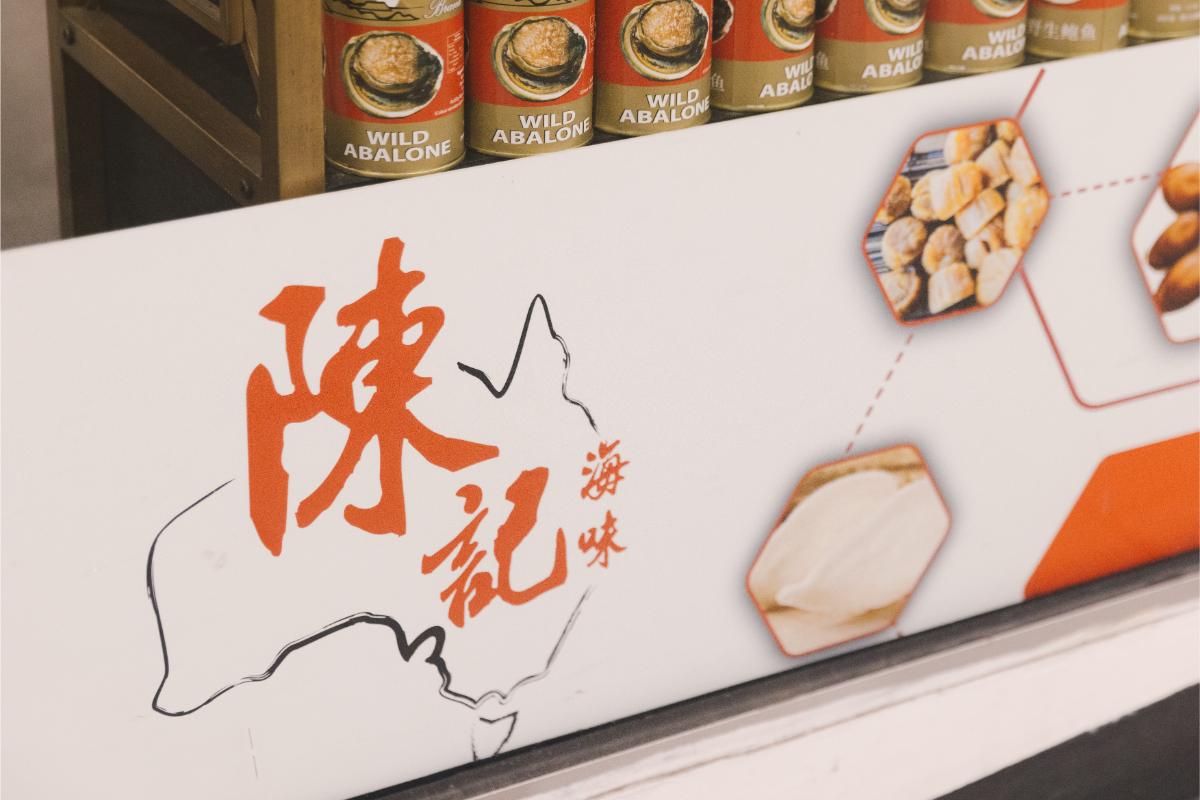AI-Generated Article
This content has been automatically generated using artificial intelligence technology. While we strive for accuracy, please verify important information independently.
Introduction to Chan Kee AYCE
What's the Deal with 'Chan' Anyway?
The Sweetness and Affection of 'Chan'
Are There Gender Nuances with 'Chan' and 'Kun'?
Is 'Chan' Just Japanese Baby Talk?
How Can You Use These Honorifics Without Being Awkward?
What About 'Chan' as a Family Name?
What's the Deal with "禅" (Chán/Shàn)?
Exploring 'Chan' in the Digital World
Is 'Ching Chang Chong' Connected to 'Chan'?
Beyond Just Words
Introduction to Chan Kee AYCE
Sometimes, a single word can hold so much more meaning than we might first think. It's almost like a tiny little treasure chest, full of cultural insights and different ways of seeing things. Today, we're going to explore one such word, "chan," and really, it’s a lot like stepping up to a grand buffet, a "Chan Kee AYCE" of information, if you will, where every bit offers a new flavor of understanding. We're talking about a comprehensive look, a real feast for your curiosity, about something that might seem simple on the surface but truly holds many layers.
You see, this particular word, "chan," isn't just one thing. It has various uses and interpretations, depending on where you encounter it and who is saying it. It’s a bit like finding a dish at a restaurant that has both sweet and savory notes, or maybe even a little spice. We’re going to pick apart these different aspects, so you can gain a fuller picture of what "chan" can signify in different settings. We want you to feel like you’ve sampled everything on the menu, getting a complete taste of its varied roles.
Our aim here is to offer you a broad and welcoming exploration of this word. We’ll look at its common uses, some of its deeper meanings, and even some unexpected places where it pops up. So, get ready to settle in, because we're about to serve up a whole lot of interesting tidbits about "chan." It’s basically an all-you-can-consume experience for your mind, offering quite a bit of insight into its cultural footprint.
What's the Deal with 'Chan' Anyway?
When you hear "chan," you might immediately think of a specific cultural context, and you'd be pretty much on the right track. In a certain language, this little word serves as a kind of respectful tag, something you add to a person's name. It's a diminutive honorific, meaning it makes things feel a bit smaller or more intimate, and it’s typically put at the end of someone's name. It really works to show warmth, a sort of gentle affection, and a sense of closeness. This is, in some respects, the very first course in our "Chan Kee AYCE" exploration, giving us a foundational taste of what this word is all about.
This particular honorific is often used for young people, perhaps girls or young women, but it can actually be applied to anyone who evokes a feeling of sweetness or innocence. Think about little ones, or even cute animals; "chan" can be used for them, too. It’s a way for the speaker to show they care, to convey a sense of endearment for the person or thing they are talking about. It truly shows a soft, caring connection, which is a lovely aspect of how people speak to one another.
- French Prairie Gardens Oregon
- Masiela Lusha Feet
- Lutali Kosher
- Emotion Clothing
- Dames N Games Sports Bar
The Sweetness and Affection of 'Chan'
There’s a definite feeling of charm and innocence that comes along with the word "chan." It's not just a simple tag; it truly carries a vibe of being sweet and gentle. Because of this, it often becomes a term of endearment, even for women who are older. It’s a way of expressing a fondness, a genuine warmth, for someone. This aspect is like a particularly delightful dish on our "Chan Kee AYCE" menu, offering a pleasant and comforting flavor.
When people put "chan" at the end of someone's name, especially for young women and children, it just adds that extra layer of affection. It shows a certain level of closeness and care, making the interaction feel more personal and warm. It’s a subtle way of saying, "I have a soft spot for you," or "You're someone I feel quite fond of." This really highlights the emotional connection the speaker has with the person they are addressing, creating a truly human touch in conversation.
Are There Gender Nuances with 'Chan' and 'Kun'?
It’s interesting to look at how different tags are used for different people. For instance, another honorific, "kun," is typically used when you are speaking to men. On the other hand, "chan" is most often used for girls or young women. However, it's not a strict rule, as "chan" can sometimes be used for both genders, depending on the situation and the relationship between the people speaking. This kind of distinction is a key ingredient in understanding the full "Chan Kee AYCE" of honorifics, helping us appreciate the subtle differences.
So, while there’s a general pattern, you might find exceptions where "chan" is applied more broadly. It often comes down to the feeling the speaker wants to convey. If there’s a desire to show affection or to make the person feel small and cute, "chan" might be used regardless of gender. It’s a pretty flexible little word in that sense, offering a range of ways to express sentiment.
Is 'Chan' Just Japanese Baby Talk?
You know, sometimes words change a little bit when we use them in a more casual or affectionate way, especially with children. "Chan" is, in a way, a form of "san," which is a more general respectful tag. But when "san" turns into "chan," it’s a bit like baby talk. This change, particularly with the "sh" sound, makes it feel softer and more intimate. It’s used for children, family members who are close, and even sweethearts. This playful side is a unique dish on the "Chan Kee AYCE" buffet, showing a lighter, more personal touch.
This shift really helps to convey a sense of closeness and warmth. It’s a way of speaking that shows a deep bond, a kind of shared intimacy. So, while it might sound like baby talk, it’s actually a very meaningful way to express affection and familiarity with someone you care about. It’s definitely not just for little ones; it creates a special connection between people.
How Can You Use These Honorifics Without Being Awkward?
When you’re learning about these different tags – like "san," "chan," or "kun," and even "sama" or "sensei" – a question often pops up: how do you use them correctly? It can feel a little tricky, honestly. You don't want to sound silly, or worse, come across as rude. It’s a bit like trying to pick the right fork at a formal dinner; you want to get it just right. This is a pretty important part of our "Chan Kee AYCE" experience, helping you navigate the social side of things.
Understanding when and how to use each one is key to showing proper respect and warmth. This article, in a way, serves as a bit of a guide, helping you sort through these different honorifics so you can feel more confident. It’s about getting a feel for the social context, knowing when to be more formal and when a softer, more affectionate term is appropriate. It really helps to avoid any awkward moments and ensures your words convey what you truly mean.
What About 'Chan' as a Family Name?
Moving beyond the honorific, the word "Chan" also shows up as a family name, particularly in certain cultures. For example, the Chinese surname "陈" can be written in English in a few different ways. You might see it as "Chen," or perhaps "Chan," and even "Chern." It's quite interesting how one name can have several different spellings, and this is a distinct course in our "Chan Kee AYCE" spread, offering a different kind of flavor.
We see this with people who are quite well-known. For instance, there’s an American singer whose family name is Jason Chen, and then, of course, the actor Jackie Chan. These variations often come down to different dialects or regional pronunciations. In Singapore, for example, the family name "陈" might be spelled as "Chen," "Chan," or "Tan," based on different ways of saying it in Fujianese. You might also find "Chin," "Teng," or "Tjhin." It really shows how diverse language can be, even for a single family name.
What's the Deal with "禅" (Chán/Shàn)?
Now, let's talk about another interesting aspect of "chan," or rather, a character that sounds quite similar. The Chinese character "禅" actually has two ways it can be said, either "chán" or "shàn." This is something that can sometimes be a bit confusing, but the meaning usually helps you figure out the correct sound. This is a deeper, more historical dish on our "Chan Kee AYCE" menu, giving us something truly thought-provoking.
One of the sounds, "chán," is often connected to Buddhism, a spiritual tradition that came to China a very long time ago. The other sound, "shàn," is used in certain historical names, like Liu Shan. So, when you see this character, you really need to look at the surrounding words and the overall meaning to know how to say it properly. It's a good reminder that language is full of these little nuances, and understanding them adds so much to our appreciation of it.
Exploring 'Chan' in the Digital World
The word "chan" also makes an appearance in the digital space, in a way that’s quite different from honorifics or family names. You might have heard of websites like "4chan" and "8chan," which is also known as "8kun." These are imageboard websites, and they are pretty well-known for certain characteristics. They offer a high degree of anonymity for the people who use them, and the content is, in some respects, not very strictly controlled. This part of our "Chan Kee AYCE" journey is like exploring the more unusual, perhaps even spicy, side dishes.
These sites are often characterized by their users being able to post things without their real names attached, and the discussions can sometimes be quite graphic or even extreme. It’s a very different kind of "chan" than the affectionate honorific or the family name, showing how a sound can appear in vastly different contexts. It really highlights the breadth of how a simple sound can be used, sometimes in ways that are pretty unexpected.
Is 'Ching Chang Chong' Connected to '
🖼️ Related Images



Quick AI Summary
This AI-generated article covers Chan Kee AYCE - Unpacking The 'Chan' Honorific with comprehensive insights and detailed analysis. The content is designed to provide valuable information while maintaining readability and engagement.
Rodolfo Welch
✍️ Article Author
👨💻 Rodolfo Welch is a passionate writer and content creator who specializes in creating engaging and informative articles. With expertise in various topics, they bring valuable insights and practical knowledge to every piece of content.
📬 Follow Rodolfo Welch
Stay updated with the latest articles and insights